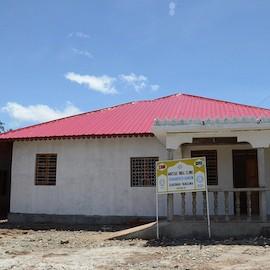
October 2015
The Unguja North A region of Zanzibar in Tanzania has allocated an amount of Tanzanian shillings 7,038,935 (US $3,260) out of the region's basket fund for health. The funds will be used to support outreach services to increase the uptake of modern family planning services from 5.3% (2012) to 10% the end of 2015. The African Women's Leadership Network for Reproductive Health and Family Planning (AWLN) sustained advocacy to ensure that the interest of women and girls in Zanzibar to use contraceptives is reignited.
Last year AWLN members embarked on a fact finding mission to identify the bottlenecks in the reproductive health and family planning supply chain that had resulted in stockouts at facility level whiles stocks in the Central Medical stores were allowed to go to waste. They undertook a survey that revealed that the forecasting of stock at the facility level was not conducted accurately, resulting in shortages. Armed with the evidence, AWLN members engaged with key decisionmakers, which resulted in a directive to retrain all reproductive health and family planning staff in Zanzibar. This was followed up by a decision to computerize the request and returns process to ensure added efficiency.
The administrative processes were completed and the structures were reviewed and made more efficient. AWLN members embarked on the next phase of their advocacy - getting the coalition to reach out to women and girls who had lost interest in accessing family planning services due to the frequent shortages they had become accustomed to. It became important to embark on outreach services to educate and inform women in the communities of the changes in supply.
The AWLN-led coalition again engaged with government partners to elicit support for this outreach. After two months of sustained advocacy, the North A region made their allocation, which represents two percent of the total funds available for the region's health sector towards outreach. Though modest, AWLN expects that this is just the start. Coalition members are confident that once government partners begin to see a rise in returning and new users, the budgets for both outreach and commodities will be increased to meet demand.
Other partners such as Marie Stopes have committed to funding any remaining gaps in funds required for outreach and services.

